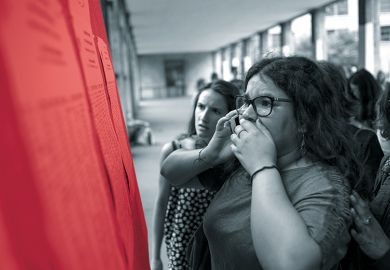The Westminster government should write off student debt for teachers in state schools to help address growing staffing problems in English schools, according to a representative university body.
Recent figures revealed that just half of the number of trainee secondary school teachers needed had been recruited, with universities particularly affected by a “catastrophic” fall.
GuildHE, a representative body for universities, university colleges and specialist institutions, says that without government action the teacher supply “crisis” will worsen.
The organisation has produced a teacher education manifesto, in association with university providers of teacher education across the sector, with a series of proposals to tackle the problem.
It focuses on the role of teacher education and ensuring a strong pipeline into the profession and the role of universities in this process.
The GuildHE manifesto advocates encouraging universities back into teacher training and supporting them to deliver high-quality education in partnership with schools, and creating a new non-departmental public body to have oversight of teacher supply and quality.
It calls for improved levels of funding, including writing off student debt for teachers who work in state-maintained schools for a particular period of time – although it does not specify for how long.
GuildHE also recommends a bursary for all teacher training students, additional financial support for placements and providing teacher training institutions with sufficient funding to cover the costs of delivering teacher education.
Jackie Dunne, GuildHE executive committee member and vice-chancellor of Birmingham Newman University, said the teaching workforce in schools in England was in crisis, with problems recruiting and retaining high-quality teachers.
“Universities are central to tackling this,” she said. “Universities deliver teacher education at scale, taking pressure off schools and grounding teacher education in the evidence of how best to enhance learning for our children and young people.”
The nine-point manifesto includes calls to enable access to ongoing professional development for all teachers, and ensure all early years educators are on a route to graduate status.
Finally, GuildHE wants to focus inspections on the continued improvement of teacher education rather than single grade outcomes.
Professor Dunne said these were practical proposals that will make a real impact on recruiting enough teachers.
“It is crucial that government and universities work together to ensure future supply and retention of high-quality teachers in our schools,” she said.
The government has already announced that teenagers are set to work as trainee teachers in an attempt to address the crisis.
According to reports, teaching degree apprenticeships will be designed to appeal to those deterred from university by tuition fees and living expenses and to attract a wider diversity of candidates into the profession.
Register to continue
Why register?
- Registration is free and only takes a moment
- Once registered, you can read 3 articles a month
- Sign up for our newsletter
Subscribe
Or subscribe for unlimited access to:
- Unlimited access to news, views, insights & reviews
- Digital editions
- Digital access to THE’s university and college rankings analysis
Already registered or a current subscriber? Login








